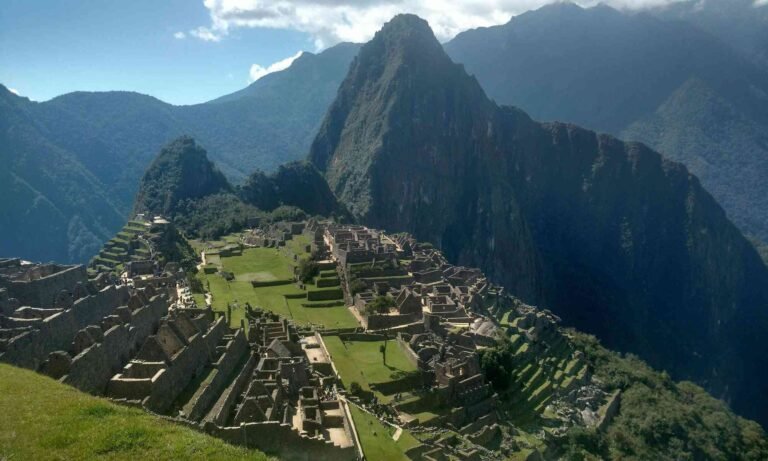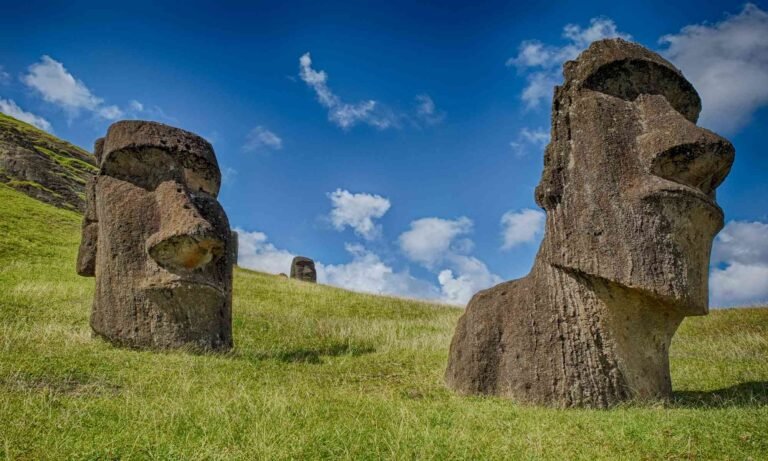Plato‘s Atlantis is one of the most enduring and fascinating myths in Western culture. It first appears in his dialogues, “Timaeus” and “Critias,” written around 360 BCE. Plato’s Atlantis has captivated the imagination of scholars and enthusiasts alike since its introduction in his dialogues, Timaios and Critias.
Atlantis is depicted as a powerful and advanced civilization that existed around 9,000 years before Plato’s time. The story of this lost city serves not only as a tale of caution but also as a reflection of Plato’s philosophical ideas regarding society, governance, and morality.

The Story Of Atlantis
Location And Description
Plato describes Atlantis as a powerful and advanced civilization that existed about 9,000 years before his own time. The island was located “beyond the Pillars of Heracles,” which is commonly identified with the Strait of Gibraltar, and was larger than Libya and Asia combined. Atlantis was a lush and fertile land, rich in natural resources, and boasted sophisticated architecture, advanced technology, and a powerful navy.
The exact location of Atlantis remains one of history’s great mysteries, and numerous theories have been proposed over the centuries. Here’s an overview of some of the most popular hypotheses:
Mediterranean Theories
Santorini (Thera) -> Some researchers believe that the island of Santorini, which experienced a massive volcanic eruption around 1600 BCE, could be the basis for the Atlantis story. The eruption caused a significant portion of the island to sink, which might parallel Plato’s description of Atlantis sinking into the sea.
Crete and the Minoan Civilization ->The advanced Minoan civilization on Crete is another candidate. It was a powerful maritime culture that suddenly collapsed around the same time as the Thera eruption. The theory suggests that the destruction of the Minoan civilization might have inspired the Atlantis legend.
Sardinia -> Some scholars propose that Atlantis could be linked to ancient Sardinia, based on archaeological finds and similarities in the descriptions of the landscape and societal structures.
Other Locations
Antarctica -> A less conventional theory posits that Atlantis could be beneath the ice of Antarctica. This idea suggests that the continent was once ice-free and home to an advanced civilization before shifting to its current location due to plate tectonics.
Caribbean -> Some researchers suggest the Caribbean region, particularly around the Bahamas, due to underwater structures like the Bimini Road, which some believe are remnants of a lost civilization.
Current Scholarly Consensus
The majority of historians and archaeologists consider Atlantis to be a myth or allegory rather than a real historical location. Despite numerous expeditions and research efforts, no conclusive evidence has been found to support the existence of Atlantis in any of the proposed locations.
Atlantic Ocean Theories
The Azores -> The Azores islands, located in the mid-Atlantic, are sometimes suggested as remnants of Atlantis. Proponents argue that the underwater topography indicates that these islands could be the peaks of a submerged landmass.
Near the Straits of Gibraltar -> Some theories place Atlantis just outside the Straits of Gibraltar, as Plato mentioned that Atlantis was beyond the “Pillars of Hercules.” This could correspond to areas like the submerged Spartel Bank.
Myth Interpretations
Allegory -> Many scholars argue that Atlantis was never meant to be a real place. Instead, it was a fictional allegory created by Plato to convey his philosophical ideas about the ideal society, the hubris of powerful nations, and the moral and political lessons he wanted to impart.
Misinterpretation of Existing Cultures -> Some theories suggest that Atlantis could be a composite of various ancient cultures and natural disasters known to the ancient Greeks, amalgamated into a single, compelling narrative by Plato.
Summary
While the mystery of Atlantis continues to fascinate, the exact location, if it ever existed, remains unknown. The legend serves more as a profound narrative on human nature, power, and morality than as a geographical puzzle to be solved.
Society And Government
Atlantis was ruled by a confederation of kings, with each ruling a different region of the island. The society was highly structured and hierarchical, with a strong emphasis on military power and conquest. The capital city featured concentric rings of water and land, with a grand palace in the center. The Atlanteans were initially virtuous and just, but over time they became corrupt and greedy, which led to their downfall.
Destruction Of Atlantis
According to the myth, the gods, particularly Poseidon, became displeased with the Atlanteans’ moral decay and hubris. As a result, a series of cataclysmic events—earthquakes and floods—led to the sudden sinking of Atlantis into the ocean, erasing it from history.
Interpretations And Theories
Symbolic Interpretation
Many scholars believe that Plato’s story of Atlantis is purely allegorical, serving as a cautionary tale about the dangers of hubris, imperialism, and moral decay. In this view, Atlantis represents an idealized society that fell from grace due to its moral failings, reflecting Plato’s philosophical views on the ideal state and human nature.
Historical And Geographical Theories
Some researchers and enthusiasts have proposed various locations around the world as the possible site of Atlantis, including the Mediterranean, the Caribbean, and even Antarctica. These theories are often based on speculative interpretations of ancient texts, geological evidence, and underwater archaeology.
Criticism And Skepticism
Many historians and archaeologists remain skeptical about the existence of Atlantis, viewing it as a fictional creation of Plato. They argue that there is no concrete evidence to support the existence of such a civilization, and that the story aligns more with mythological and literary traditions rather than historical fact.
Influence And Legacy
The legacy of Atlantis extends beyond its philosophical roots, inspiring countless works of literature, film, and art over the centuries. From Jules Verne’s adventures to modern cinema, the allure of a mythical utopia has led to numerous interpretations, often focusing on themes of loss and hubris. Moreover, Atlantis symbolizes ongoing debates about humanity’s relationship with the environment, serving as a cautionary tale about the consequences of negligence and excess.
Discussions about Atlantis’s existence thrive in popular culture and scholarly circles. Archaeologists, historians, and theorists propose various locations and interpretations, from historical reality to allegory. As interest in sustainability and environmentalism grows, Atlantis serves as a metaphorical warning about the fragility of civilizations and the importance of ethical stewardship.
While the existence of Atlantis remains debated, its role as a powerful myth in Western culture is undeniable. Plato’s tale of a lost civilization serves as both a philosophical allegory and a source of endless fascination for explorers, scholars, and dreamers alike. The enduring allure of Atlantis continues to inspire new generations to ponder the mysteries of our past and the potential lessons for our future.
What’s More
The posts in My Blog feature reflective, story-driven pieces rooted in personal and societal insights.
The topics in My Interests explore abstract, philosophical ideas and their cultural and societal impact.
👁️ 8,554 Views















